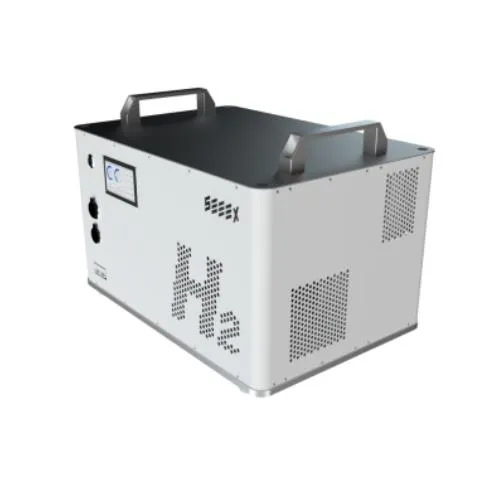Why are hydrogen fuel cell systems widely used?
Why are hydrogen fuel cell systems widely used
The reason why hydrogen fuel cell systems are widely used is that they have many unique advantages, making them one of the important technologies in the field of sustainable energy. Here are some reasons why hydrogen fuel cell systems are widely used:

Why are hydrogen fuel cell systems widely used?
1. Efficient energy conversion: Hydrogen fuel cells can efficiently react hydrogen and oxygen to produce electrical energy. This process has almost no pollutant emissions, only water and heat. Compared with traditional combustion methods, hydrogen fuel cells have higher energy conversion efficiency and can use fuel more effectively.
2. Zero emissions and environmental protection: There is almost no tail gas emission during the use of hydrogen fuel cells, only water vapor, and no air pollutants or greenhouse gases are produced. This makes hydrogen fuel cells an important means of reducing air pollution and climate change, contributing to environmental protection.
3. Applications in multiple fields: Hydrogen fuel cell systems can be used in many fields, including transportation, industrial production, energy storage, etc. Fuel cell vehicles can replace traditional fuel vehicles and achieve zero-emission road transportation. The industrial sector can use hydrogen fuel cells to provide electricity and heat to meet the energy needs of the production process.
4. Fast hydrogenation and long cruising range: Fuel cell vehicles can complete hydrogenation in a short time. Compared with traditional electric vehicles, the charging time is shorter and the user experience is more convenient. In addition, fuel cell vehicles typically have a longer range than pure electric vehicles, making them more suitable for long-distance travel.
5. Energy storage and stable supply: Hydrogen fuel cell systems can be used as a means of energy storage, using the remaining renewable energy to produce hydrogen through electrolysis of water, which is then used to generate electricity when needed. This helps balance the power grid and address the issue of renewable energy volatility.
6. Technological innovation and investment: In terms of hydrogen fuel cell technology, there are continuous innovative developments and investment injections. This promotes increased efficiency, lower costs and better reliability of fuel cells, making them more attractive in the market.
7. Energy transition and policy support: Many countries are actively promoting energy transition and reducing dependence on traditional fossil fuels. The government has formulated incentive policies to encourage the development and application of hydrogen fuel cell technology, thus promoting its widespread use.
Although hydrogen fuel cell systems have many advantages, they also face some challenges, such as the production, storage and transportation of hydrogen. With the continuous advancement and innovation of technology, these challenges are expected to be solved, allowing hydrogen fuel cell systems to play a greater role in the future energy field.
 English
English Español
Español Português
Português русский
русский français
français 日本語
日本語 Deutsch
Deutsch Tiếng Việt
Tiếng Việt Italiano
Italiano Nederlands
Nederlands ไทย
ไทย Polski
Polski 한국어
한국어 Svenska
Svenska magyar
magyar Malay
Malay বাংলা
বাংলা Dansk
Dansk Suomi
Suomi हिन्दी
हिन्दी Pilipino
Pilipino Türk
Türk Gaeilge
Gaeilge عربى
عربى Indonesia
Indonesia norsk
norsk اردو
اردو čeština
čeština Ελληνικά
Ελληνικά Українська
Українська فارسی
فارسی български
български Latine
Latine slovenský
slovenský Eesti Keel
Eesti Keel Српски
Српски Esperanto
Esperanto Afrikaans
Afrikaans icelandic
icelandic Беларус
Беларус Hrvatski
Hrvatski Bosanski
Bosanski Maori
Maori Монгол хэл
Монгол хэл Hmong
Hmong Somali
Somali Точик
Точик O'zbek
O'zbek Hawaiian
Hawaiian Philippine
Philippine

Hydrogen Fuel Cell Vehicle Power Supply: Revolutionizing Clean Transportation
As the automotive industry continues to seek sustainable alternatives to traditional gasoline and diesel engines, hydrogen fuel cell vehicles (FCVs) are emerging as a promising solution. Powered by hydrogen fuel cells, these vehicles offer a clean, efficient, and sustainable alternative to conventional internal combustion engine vehicles. The power supply system of a hydrogen fuel cell vehicle plays a crucial role in determining its performance, efficiency, and environmental benefits.
Read MoreApplication market of hydrogen fuel cells: welcoming the future of clean energy
With the increasing global demand for clean energy, hydrogen fuel cell technology, as a green and environmentally friendly energy solution, is gradually penetrating into multiple industries. Its zero-emission and high-efficiency characteristics make its application prospects in transportation, energy storage, industry and other fields more and more broad. The following is the current application status and future potential of hydrogen fuel cells in major markets.
Read MoreHydrogen Energy System: Advantages for a Sustainable Future
As the world transitions toward cleaner, more sustainable energy sources, hydrogen energy systems are emerging as a powerful solution with significant advantages. With growing concerns about climate change and the need for carbon reduction, hydrogen energy offers a promising path to decarbonize industries, transportation, and power generation. Here are some of the key benefits of hydrogen energy systems.
Read More